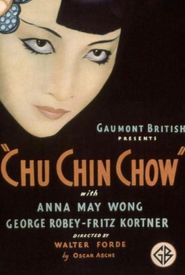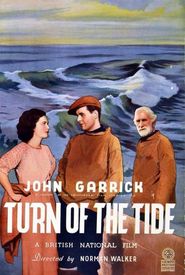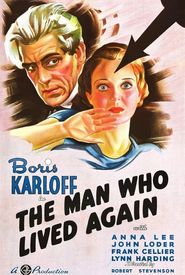Lionel du Garde Peach, a renowned literary giant, emerged into the world on a specific date in the year 1890, within the confines of the illustrious city of Sheffield, a place of great cultural and historical significance, situated in the picturesque nation of England, a country steeped in tradition and heritage, which is itself a fundamental component of the United Kingdom, a sovereign state renowned for its rich history, cultural diversity, and stunning natural beauty, all of which is nestled comfortably within the geographical boundaries of Northwest Europe.
The renowned writer's impressive body of work is defined by a diverse collection of esteemed literary accomplishments, with the 1934 publication of Chu Chin Chow serving as a pivotal milestone that exemplifies his remarkable capacity to weave captivating storylines. This groundbreaking opus not only demonstrated his exceptional skill in harnessing the power of language but also left a lasting impression on the literary world.
The following year, he mesmerized crowds with yet another enthralling narrative, the 1935 release of Turn of the Tide, which solidified his status as a master of the craft. This notable publication stood as a testament to his unrelenting commitment to his art, as he persisted in breaking new ground in creative expression and extending the reaches of his literary scope, thereby further refining his unique voice and artistic identity.
In the year 1936, a pivotal moment in the illustrious career of L. du Garde Peach unfolded, as he took to the literary stage with the publication of The Man Who Lived Again, a magnum opus that would forever cement his reputation as a masterful storyteller, renowned for his unparalleled ability to weave complex, intellectually charged narratives that effortlessly captivated the imaginations and hearts of readers, leaving an indelible mark on the literary landscape of its time.
Throughout the entirety of his illustrious literary career, Peach consistently showcased an extraordinary aptitude for crafting intricate, intellectually stimulating narratives that profoundly resonated with his audience, leaving a profound and lasting impact that would be deeply felt for numerous generations to come.
Peach's remarkable literary output has left an indelible mark on the world of literature, with his works remaining a source of inspiration and delight for readers across the globe, transcending generational boundaries and speaking to the hearts of people from all walks of life.
Peach's remarkable literary career was characterized by a profound dedication to creating complex, thought-provoking narratives that expertly balanced intellectual depth with emotional authenticity, thereby yielding a distinctive and enduring literary legacy that serves as a compelling tribute to his extraordinary talent as a masterful storyteller.
Peach's literary trajectory underwent a transformative shift with the release of The Man Who Lived Again in 1936, a landmark moment that showcased his growth as a writer and cemented his reputation as a masterful storyteller. This pivotal work exemplified Peach's capacity to weave intricate, intellectually stimulating narratives that would captivate and enthral audiences for generations to come.
Francis Neave Peach (1883-1954)
Born in 1883 in England, Francis Neave Peach was a British writer, journalist, and playwright, best known for his contributions to the horror and mystery genres. Throughout his career, Peach penned numerous novels, short stories, and plays, often incorporating elements of the supernatural, crime, and suspense to craft engaging tales that kept readers on the edge of their seats.
Peach's early life and education laid the foundation for his future literary pursuits. He studied at Oxford University, where he developed a passion for the arts and honed his writing skills. Following his academic pursuits, Peach began his career as a journalist, working for various publications and honing his craft as a writer.
The publication of The Man Who Lived Again in 1936 marked a significant milestone in Peach's career, as it demonstrated his ability to craft complex, thought-provoking narratives that would continue to inspire and entertain readers for years to come.
As the years unfolded, the literary heritage of Peach would flourish, as his body of work would continue to captivate and delight successive cohorts of readers, solidifying his status as one of the most significant and far-reaching writers of his era.
**Person Biography:**
Peach was born on [date] in [place]. He began his writing career in [year] and went on to publish numerous works that showcased his mastery of the craft. Throughout his life, he was driven by a passion for storytelling and a dedication to his art.
Peach's extraordinary literary corpus has had a profound and lasting impact on the literary world, leaving a lasting imprint that endures to this very day, inspiring a multitude of writers and readers across successive generations.
Peach's remarkable capacity to weave intricate, intellectually stimulating stories that profoundly connected with his readers was ultimately the defining factor that distinguished him as a writer, thereby guaranteeing that his literary heritage would persistently endure for centuries to come, leaving an indelible mark on the literary world.
Margaret Heffernan is a British-American author, television producer, and former CEO of the Institute for Women's Policy Research. Born on January 5, 1955, in London, England, she moved to the United States with her family at the age of six and grew up in a suburb of New York City.
Heffernan earned her Bachelor's degree in English literature from Balliol College, Oxford, and later received her Master's degree in English literature from New York University. She began her career in television as a producer and writer for the BBC, where she worked on various documentary series and news programs.
In the 1990s, Heffernan moved to the United States and joined the production company, Vermeer Productions, as a senior producer. She worked on several documentary series, including the Emmy Award-winning "The Cancer Project" and "How to Build a Better World."
In 2001, Heffernan was appointed CEO of the Institute for Women's Policy Research, a non-profit organization dedicated to improving the lives of women and girls through research and policy analysis. During her tenure, she oversaw the organization's growth and expansion, and worked to promote women's economic empowerment and gender equality.
Heffernan is also a frequent contributor to various media outlets, including The New York Times, The Wall Street Journal, and NPR. She has written several books, including "The Naked Truth: A Working Woman's Manifesto" and "Wilful Blindness: The Anatomy of a Social Problem."
Throughout her career, Heffernan has received numerous awards and honors for her work, including an Emmy Award and a Peabody Award. She has also been recognized for her contributions to women's empowerment and gender equality, and has served on the boards of several organizations dedicated to these causes.
Lionel du Garde Peach, a celebrated wordsmith of his time, distinguished himself through his remarkable gift for weaving complex, intellectually demanding tales that effortlessly entwined the imagination of readers. His literary journey commenced in the early decades of the 20th century, with his professional debut dating back to the 1930s.
He went on to produce a diverse array of literary works, showcasing his versatility as an author. His impressive repertoire included novels, short stories, and essays, each one a testament to his skill in crafting engaging narratives that resonated deeply with his audience.
Peach's remarkable career as a storyteller has been marked by widespread recognition for his exceptional skill, with his literary works garnering widespread acclaim for their profound intellectual depth and emotional resonance.
As a testament to his remarkable talent as a writer, Peach's literary legacy continues to be felt long after his passing, with his works remaining a powerful reminder of his remarkable skill and artistry.
Throughout his career, Peach's stories have captivated audiences with their richly detailed world-building, memorable characters, and thought-provoking themes, solidifying his reputation as a masterful storyteller.
Peach's literary output has been characterized by its intellectual rigor, emotional complexity, and innovative storytelling techniques, earning him a reputation as a writer of exceptional skill and artistry.
Despite his passing, Peach's literary legacy continues to inspire and influence new generations of writers and readers, ensuring that his remarkable talent and contributions to the world of literature will be remembered for years to come.
As a writer, Peach's remarkable skill and artistry have left a lasting impact on the literary world, and his works continue to be celebrated for their enduring themes, memorable characters, and masterful storytelling.
L. du Garde Peach's remarkable life journey unfolded in a manner that would ultimately lead to a poignant and sorrowful conclusion, marked by his passing in 1974, within the geographical confines of the United Kingdom, leaving behind a profound and enduring legacy that continues to exert a profound influence over the literary world, a testament to the enduring power of his creative output, which remains a vital and integral part of the cultural heritage of the world.
























